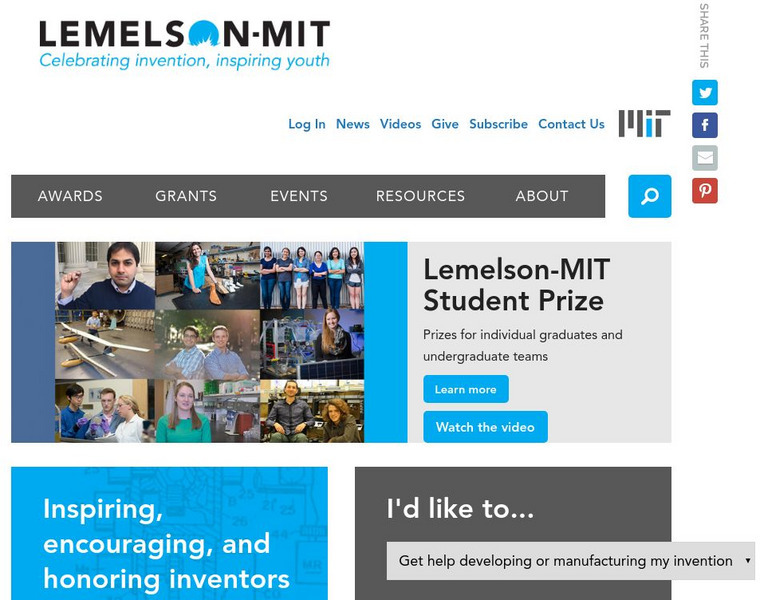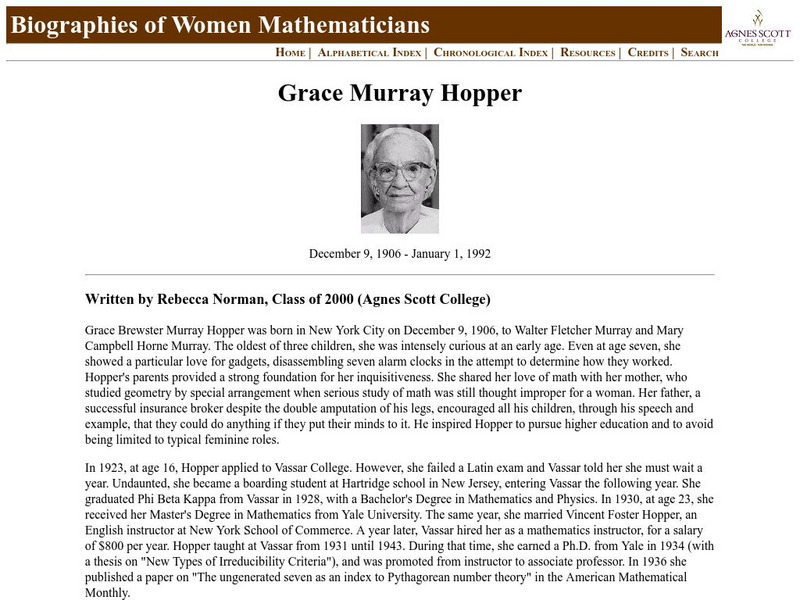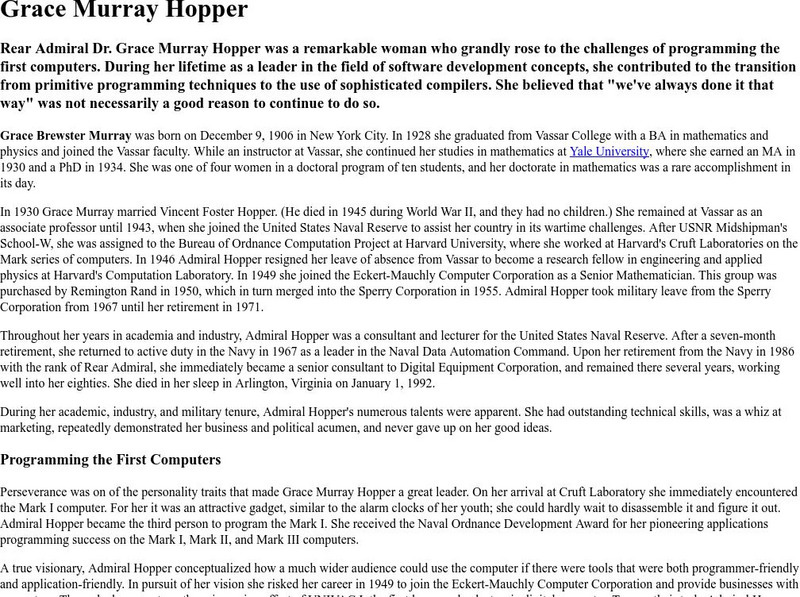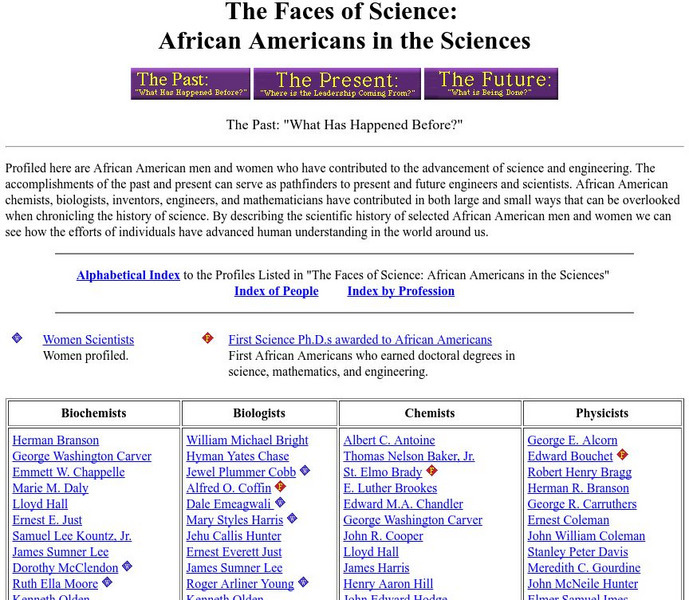Curated OER
Feel Empowered! Teaching About Female Inventors
Inspire children to learn and create by teaching the history of female inventors during National Inventors Month.
Curriculum Corner
African American Inventors
Celebrate Black History Month with a packet of materials on African American inventors. Readers discover several inventors' character traits, their inventions, and their lives. They even have the opportunity to conduct further research...
American Institute of Physics
Eunice Foote: Scientist and Suffragette
The greenhouse effect and climate change are hot topics in today's news. Young scientists may be surprised to learn that the concept is not a new one. In fact, Eunice Newton Foote, scientist, inventor, and suffragette, discovered the...
Curated OER
Women's Achievement Quiz
How much do you or your class know about various achievements made by women thorughout history? Here is a set of 10 questions with answers all related to the accomplishments of women in science, politics, civil rights, and law.
Curated OER
What Is That Thing?
Could your class identify an old-fashioned can opener? What about a rotary phone,...
Curated OER
Into the Future
Fourth graders investigate how new inventions and technology change how we live.
Ballard & Tighe
Multiple Choice Masterpiece
What a fun way to mix up your traditional multiple-choice quiz on the Renaissance! After completing a worksheet reviewing significant Renaissance artists and events, your learners will have the opportunity see if tiles that correspond to...
Curated OER
Plants and Animals: Partners in Pollination
Students identify the plant parts and bee structures that are involved in pollination. They simulate pollination in a group activity and process the information.
University of Houston
University of Houston: Engines of Our Ingenuity: No. 326: Colonial Women Inventors
Provides information on two Colonial women inventors. This is a transcript of an accompanying radio broadcast.
National Women’s History Museum
National Women's History Museum: Inventive Women Part 1
Learners will learn about female inventors and their contributions to American technology.
Massachusetts Institute of Technology
Mit: Inventor of the Week: Anna Keichline
At this site from Massachusetts Institute of Technology you can read about inventors, Anna Keichline and Lillian Gilbreth, who sought to make women's lives easier through their household items.
A&E Television
History.com: 9 Groundbreaking Inventions by Women
Women inventors are behind a wide range of key innovations, from Kevlar to dishwashers to better life rafts. Female inventors have played a large role in U.S. history, but haven't always received credit for their work. Women --...
Massachusetts Institute of Technology
Mit: Inventor of the Week: Virginia Apgar
At this site from MIT Invention Dimension you can read about Virginia Apgar and her accomplishments as "One of Columbia University's first female M.D.s," as a researcher of childbirth, and as the inventor of the "Newborn Scoring System."
National Women’s History Museum
National Women's History Museum: Anna Wagner Keichline
A biographical look at the life of Anna Wagner Keichline - architect, inventor, suffragist, and World War I Special Agent.
Agnes Scott College
Agnes Scott College: Grace Murray Hopper
Short biography includes a picture and references.
Yale University
Yale: The Ada Project: Grace Murray Hopper
A concise biography that includes personal as well as professional information.
Energy for Sustainable Development
Esd Bulgaria: Kids & Energy: Energy Pioneers: Gertrude Elion (1918 1999)
A profile of Gertrude Belle Elion, an American biochemist and pharmacologist and a Nobel Prize winner. She struggled to find her place in the male-dominated scientific world, and went on to become the first woman to be inducted into the...
University of California
Princeton University: The Faces of Science: African Americans
This resource explores the role of African Americans in science. Past contributions, present activity and future possibilities are all discussed.















